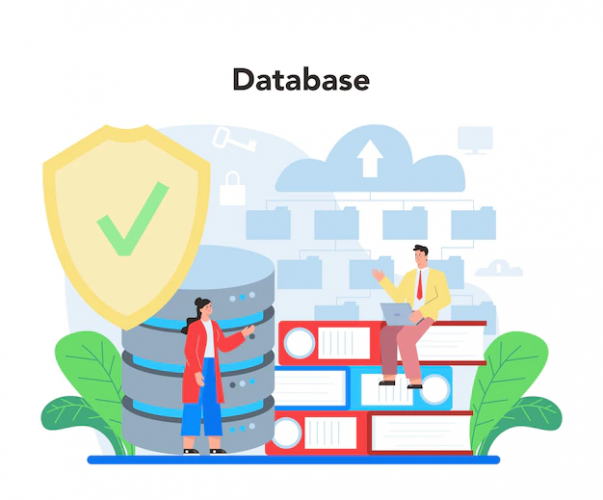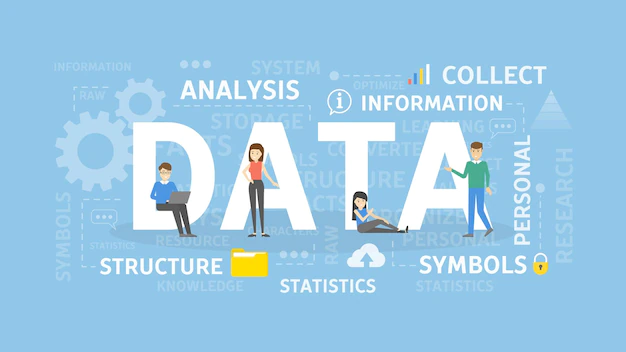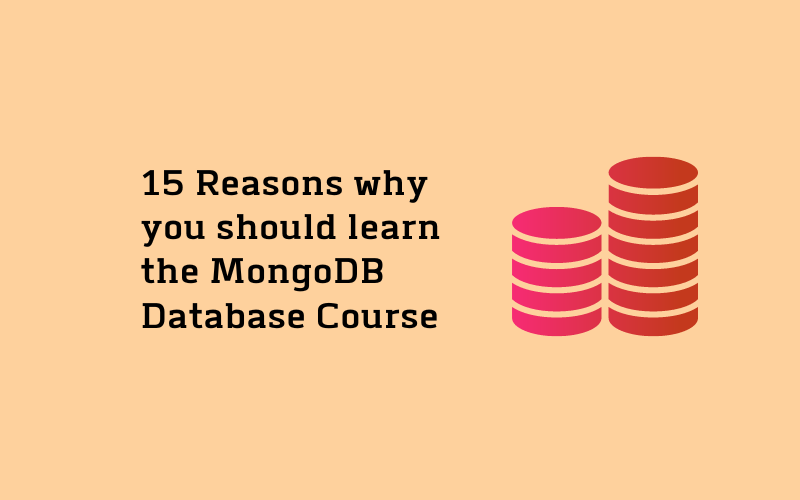
In a company, database administrators (DBAs) manage the design, implementation, security, and maintenance of the company’s databases. A MongoDB course is an excellent way to gain the knowledge and database skills necessary to succeed in this challenging role.
The course will train you to plan, install, configure and manage database applications using different software platforms. You’ll be taught how to troubleshoot common issues and optimize database performance. In this blog, we will discuss 15 reasons for taking this course. If you’re looking for a career with plenty of challenges and opportunities, consider becoming a MongoDB expert.
What is Database, and why is it essential?
A database is a collection of information that can be easily accessed, updated, and managed. It is the lifeblood of any modern application and can store information on everything from people and places. You can think about them as an organized collection with different pieces put together for convenience’s sake because who doesn’t love being able to find what you’re looking for when it matters most?
The database is a key component of the software. It stores all information about customers and transactions within your company’s network, which means you can access it at any time for research or auditing purposes.
Role & Responsibilities of a Database Administrator:
Database administrators are a vital part of any company’s IT department. They control who has access rights and determine employee level privileges for employees in their organization, depending on what needs arise from the business sector that they work with at each firm or industry segmentation level.
- Collecting information, organizing, and managing data
- Fixing security issues
- Creating and managing backups of the database.
- Ensuring data accessibility for better performance
- Troubleshooting errors
Introduction to MongoDB:
MongoDB is a document database solution that helps build highly available and scalable internet applications.
It is a document database that stores structured or unstructured data in JSON-type format. It helps map directly to native objects, which are available in most programming languages.
MongoDB can handle huge amounts of data on many small machines using a scale-out architecture.
How to become a MongoDB Administrator:
A MongoDB admin must put in the time and effort to become one. So follow this short guide on what it takes:
❖ Complete your Education:
To become a database administrator, you must have an educational background in computer science or information technology.
The DBMS courses provide a foundation in data management, computer architecture, and logic design. Candidates can choose from among several programs that include network administration or programming languages for the systems side of things as well. Ensure that you choose an online software course that covers advanced topics that makes you career-ready.
❖ Getting Certified is Important:
Database administrators are in high demand, so it’s important to have the right certification. Database certifications from many software vendors establish credibility and improve the chance of finding better opportunities with employers who require them for work positions today.
❖ Gain Experience:
It is essential to gain hands-on experience in using third-party tools for database design, documentation, and coding before becoming a full-time Database Admin. You can do this through internships or projects, which will help familiarize you with industry norms while expanding your network of mentors who may guide career growth opportunities.
❖ Reach out to Opportunities:
Database administrators are in high demand nowadays. To stand out from other candidates, you should have certifications showing your industry experience and knowledge of programming languages such as Apache, HTML/CSS3 & Java, or even Microsoft’s SQL server platform. All this will help prove how skilled a potential hire could potentially become.
Necessary skills for a Database Admin:
You must master many hard skills for your job duties for advanced database administration. The hard skills require concentration with technological aptitude so they can be acquired by those who choose this career.
a. SQL:
SQL is a query language that organizes and identifies data in databases. The three major database languages are SQL, Oracle Database (or OCI), and IBM’s DB2(R). Professionals might need to build web databases with MySQL or create relational database application connections among multiple datasets using Transact-SQL while controlling object-oriented database concepts through PL/SQL. Relational database design satisfies a database design’s ACID (atomicity, consistency, integrity, and durability) properties.

Freepik
b. Oracle:
The Oracle database is a popular, industry-standard platform for data storage. It offers access to an organization’s datasets in its relational databases that work with most major platforms, including Windows, UNIX, and Linux Mac OS.
c. UNIX:
The UNIX operating system is a critical database management and administration building block. It provides the organizational foundation for most Mac systems, Android phones, and PlayStation consoles, greatly influencing modern-day technology.
d. Linux:
Open-source Linux is a computer operating system that can run on various computer systems, including smartphones and supercomputers. It’s free to install, with online courses available for anyone who needs help creating comprehensive platforms for client work or companies’ business operations.
e. Data Analysis:
Data analytics is a branch of information technology that deals with the fast-paced world we live in today. Analysts use their skills to turn massive amounts of data into something useful and illustrative for companies or clients. Furthermore, it helps them improve their systems by cleaning up datasets and prioritizing what’s important so they can make better business decisions.
f. Microsoft Access:
Microsoft Access combines the relational Jet Database Engine with a graphical user interface and software application development tools to create a Database Management System (DBMS). It is part of the Microsoft Office suite of applications, which is included in the professional and higher editions.

Though there are plenty of reasons to take up this course, we have listed 15 major reasons below:
1. Power of Scalability:
MongoDB’s scale-out architecture can handle and support high data and traffic volumes. That’s why it is considered the best for scalability.
2. Great Support System:
Taking MongoDB online courses will give you a deeper understanding of how this incredibly popular document database works. Among MongoDB’s many regular expression searchers are range queries, fields, and other required regular expressions.
3. Indexing:
Indexing the fields in MongoDB is made easy with primary and secondary indices.
4. Schema:
Its flexible and dynamic schema approach is very popular with database development teams. It will certainly impress the team as it uses agile methodologies.
5. Load Balancing:
Executing means how well data can be distributed across different machines or servers without overloading any one node while allowing reads from every device without causing pages to sit idle.
6. Replication:
Its scale-out architecture uses replication for fault tolerance and distributes work over several smaller computers.
7. Storage:
MongoDB is best for any size business or organization with high demands on their storage space and data-intensive workloads.
8. Queries Faster:
MongoDB is the best in query language as it supports powerful and dynamic queries on documents facilitating advanced queries.
9. Change-friendly Designs:
Many programmers often bring down the site or application for customizing purposes. Still, with MongoDB, there won’t be any necessity because their basic database design concepts are impressive.
10. Simplicity:
The MongoDB Database Administrator course offers simplicity by making databases simple so that even those without much knowledge about computer science will not have difficulty setting up their database.
11. Easy to Use:
When compared to other databases, MongoDB is easy to use. No previous experience is required; even a fresher can understand the database and use it efficiently without hassle. The Binary JSON format makes it super easy to use the database, especially if you use Java programming libraries like Node.js, React, or Express.js.
12. Impressive Speed:
There is a high demand for MongoDB due to its speed. The database speed is impressive since no tables or schema need to be created.
13. Compatibility:
The MongoDB database systems combine seamlessly with numerous programming languages, including Python, Ruby, and JavaScript, allowing for high coding productivity.
14. Easy Accessibility:
MongoDB is best as it supports almost all the major programming languages, including C, C++, C#, Java, Node.js, Perl, PHP, Python, Ruby, Scala, and many more.
15. Execution of JavaScript:
Online MongoDB training shows you how to aggregate and query JavaScript functions between the server and MongoDB Admin. These scripts are sent without reservation by the system for implementation.
Conclusion:
The MongoDB database is designed with excellent capabilities and has many built-in features that make it stand out. The IT sector, e-commerce, banking, and logistics companies use MongoDB for storing uncategorized data in the most sophisticated way.
Learning database courses will prove beneficial for your career transition. Before enrolling for the database course, look at the top 15 reasons to take up the MongoDB online course we have outlined for you. Plenty of database courses are available today, but you should know the purpose of learning and the institution you join.
